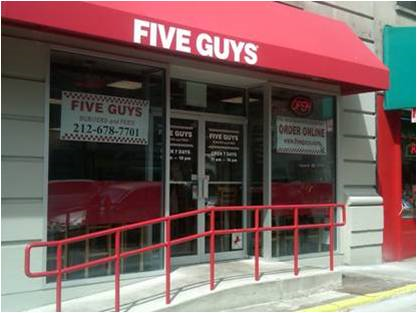Pecovic Named AVP, Plant Engineering & Utilities

Move beyond his title as Morningside's new Assistant Vice President, Plant Engineering & Utilities,and George Pecovic will tell you he's all about building a team and centralizing operations.
Pecovic arrived at Columbia about three months ago, after 10 years designing, constructing and managing engineering systems at Weill Cornell Medical Center in New York City. He has assumed the title and responsibilities formerly held by Frank Martino, who was named Vice President, Operations, and with whom Pecovic worked for a time at Weill Cornell. Pecovic says he was attracted to Columbia as "a world-class organization, an Ivy League school with great opportunities and challenges," including those inherent in the new Manhattanville campus.
"George brings great enthusiasm and competence, both in the day-to-day demands of overseeing the Morningside campus mechanical systems and in building a forward-looking team," says Martino."George's vision incorporates Columbia's need for operations that are efficient and at the same time environmentally sustainable."
At present, however, Pecovic sees himself in large measure as a recruiter for positions dealing with operations and the physical plant, several of which were open when he arrived. In fact, he says, "the most important part of my job is knowing how to build a good team."
Pecovic is looking for managers "who know how to run and maintain a plant, but are also environmentally conscious," he says. "It's not just about running a plant, but also thinking about what we are doing to Mother Earth, not just good engineering, but understanding its environmental impact."
Leaking pipes and ducts, lack of or compromised insulation, clogged or non-functional steam traps, and basic maintenance - what Pecovic calls "lots of low-hanging fruit" - are at the top of his "to do" list that's being addressed as quickly as possible, he says.
Then he talks about "the great projects going on at Columbia," two of which are under his supervision and involve campus cooling and heating systems. Two new ultra-efficient chillers, one electric, the other steam-driven, are being installed ahead of the summer cooling season, A third new chiller is planned for the near future, and an upgraded boiler and automation system are also expected to be completed in the next month or so.
Both systems are huge steps in Columbia's attempt to centralize equipment in place of what Pecovic calls "lots of rogue equipment - chillers everywhere." He's quick to point out the economic and environmental advantages of having chillers, boilers and generators in one location.
The new controls package that runs the boilers provides "optimization of equipment," Pecovic says. The package involves metering and monitoring, then controlling the system - making adjustments to its running as needs arise, thereby lessening energy consumption.
Yet centralization is just one part of the Plant Engineering & Utilities vision for the Morningside campus. That vision is being developed into a Master Plan, including centralization. "We need to look beyond the building needs of today," Pecovic says. "We have to be ahead of the curve."
Several other projects in the planning stages will also reduce the carbon footprint and increase infrastructure reliability, Pecovic says. They're CHP - combined heat and power - that derives two forms of energy from a single fuel source; boiler burner conversion, in which #2 fuel will replace #6 fuel; and industrial grade metering and monitoring for all major plant systems.
The CHP installation, which produces electricity and steam from natural gas will help Columbia's commitment to Mayor Michael Bloomberg's PlaNYC, in which the city's major institutions of higher learning will reduce their carbon footprints by 30 percent by 2017, Pecovic says. The #2 fuel oil will burn cleaner, and meet demands of upcoming federal legislation limiting the amount of sulfur that can be released into the atmosphere.
Martino is the driving force behind the Master Plan as he is in bringing together the Plant Engineering team. Pecovic says that "as we build the team, we also need time to figure things out before we finalize the plan. That means drawing from our own experience but also looking around at what others are doing, and checking out best practices."
Working with Manhattanville and its successful development should be helpful, with ideas brought back to Morningside, Pecovic believes. "It's easier to make decisions when you're starting from scratch as is happening at Manhattanville, and it's harder to incorporate advanced techniques into an old infrastructure such as Morningside," he says.
Whatever the jobs facing him or their magnitude, Pecovic says he's joined up with Columbia people having fun doing what they're doing and with this kind of relationship, "it feels like coming home."
It seems that Pecovic's actual home is the impetus for his commitment to team building on campus. He's been involved with his local Little League program for the past eight years, and new professional responsibilities notwithstanding, he's out on the field again this spring. Pecovic manages and coaches his 9- and 13-year-old sons' teams.
"I find it extremely exhilarating and yet very challenging, and therapeutic at the same time," Pecovic says. "It helps keep me balanced. I also find that a lot of the team building and interpersonal skills I require for the baseball team can be incorporated into my work."
--courtesy of Columbia University Environmental Stewardship